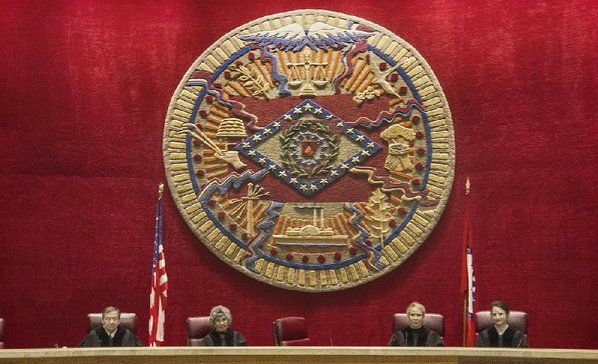A Fayetteville ordinance that prohibits discrimination against gay, lesbian, bisexual and transgender people was argued for the second time before the Arkansas Supreme Court on Thursday, as part of a years-long legal battle between the city’s attorneys and the state government.
Almost two years ago, the state’s highest court ruled in a 7-0 decision that the city’s Uniform Civil Rights Protection ordinance violates a state law prohibiting counties and municipalities from extending protections to groups of people not included in the state’s non-discrimination laws.
The justices then remanded the case to Circuit Court Judge Doug Martin of Fayetteville, who in September 2017 denied a motion by Attorney General Leslie Rutledge to halt the ordinance.
Martin’s decision to allow the continued enforcement of the non-discrimination ordinance wound up on appeal back before the Supreme Court.
During oral arguments Thursday, several justices, led by Justice Rhonda Wood, questioned why the case was back before them after nearly two years.
“I really don’t understand why we are here today,” Wood said, before asking Arkansas Solicitor General Nicholas Bronni if the correct action would be to simply reverse and dismiss the case this time.
“Didn’t we essentially declare that this ordinance is void?” asked Justice Karen Baker.
Bronni agreed that the justices could opt to dismiss the case, but he said the case on appeal also presented bigger legal questions about whether courts should “conduct inquiries” into legislative actions.
Garrard Beeney, an attorney for the group Parents and Friends of Lesbians and Gays, argued for the ordinance before the court. He said Martin was right to deny an injunction against the law because the two sides had not settled on what information would be appropriate to seek from lawmakers about their intentions in passing the law.
Two justices on the court, Josephine “Jo” Hart and Courtney Goodson, recused from hearing the case.
They were replaced at oral arguments Thursday by Special Justices Hugh Alan Finkelstein and Maureen Hazinski Harrod.
